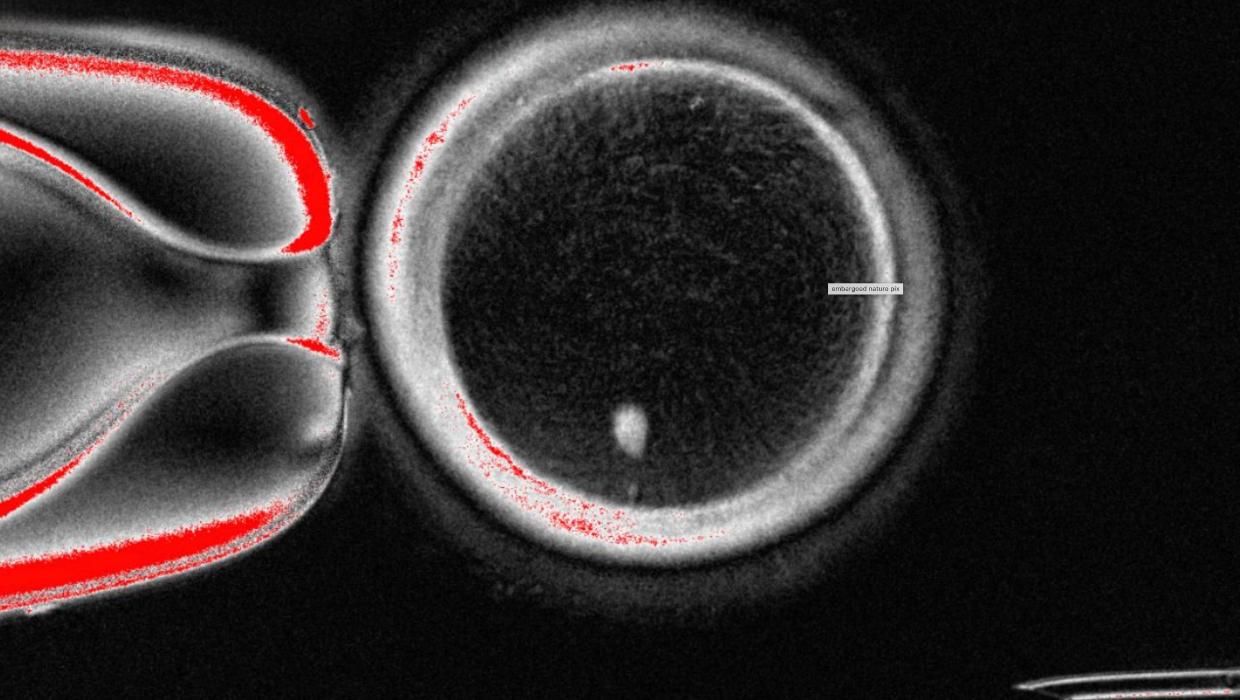Science
US Researchers Transform Skin Cells into Viable Human Eggs

A team of scientists in the United States has successfully transformed human skin cells into fertilizable eggs, marking a significant advancement in reproductive science. This breakthrough could pave the way for the development of lab-grown eggs and sperm, potentially helping individuals facing fertility challenges.
The research, conducted by a group at the University of California, Los Angeles (UCLA), involved reprogramming skin cells into a type of stem cell known as induced pluripotent stem cells (iPSCs). These iPSCs were then guided to develop into oocytes, or immature eggs. The team demonstrated that these lab-created eggs could be fertilized in vitro, demonstrating their potential for conception.
Implications for Fertility Treatments
This development holds immense promise for couples struggling with infertility, as well as for individuals who may not have access to traditional methods of conception. According to Dr. Amandine B. B. V. B. Huet, the lead researcher on the project, “Our goal is to offer new solutions for people who cannot conceive naturally or through conventional assisted reproductive technologies.”
Currently, infertility affects approximately 15% of couples worldwide, leading many to seek out alternative methods for starting a family. The ability to create viable eggs from skin cells could dramatically alter the landscape of reproductive health, offering hope to those who have exhausted other options.
The researchers emphasized that while this is a significant step forward, further studies are necessary to ensure the safety and effectiveness of these lab-grown gametes. Potential ethical concerns also need to be addressed, particularly regarding the implications of creating human eggs and the future of reproductive technology.
Future Directions and Ethical Considerations
As the research progresses, scientists will focus on refining the techniques used to create and mature these eggs. They aim to explore whether this method can be expanded to produce viable sperm as well. Such advancements would represent a significant leap in reproductive biology, potentially enabling same-sex couples and single individuals to have biological children.
While the excitement surrounding this research is palpable, it raises important ethical questions. The potential for manipulation of human reproduction could lead to debates about the implications of creating life in a laboratory setting. Dr. Huet noted, “We must carefully navigate the ethical landscape as we move forward in this exciting field.”
This groundbreaking study was published in the journal *Nature* on October 3, 2023, and has generated widespread interest in both the scientific community and the public. As research in this area continues to evolve, the possibility of lab-grown eggs and sperm may one day become a reality, changing the way we think about conception and family building.
-

 World3 months ago
World3 months agoTest Your Knowledge: Take the Herald’s Afternoon Quiz Today
-

 Sports3 months ago
Sports3 months agoPM Faces Backlash from Fans During Netball Trophy Ceremony
-

 Lifestyle3 months ago
Lifestyle3 months agoDunedin Designers Win Top Award at Hokonui Fashion Event
-

 Sports3 months ago
Sports3 months agoLiam Lawson Launches New Era for Racing Bulls with Strong Start
-

 Lifestyle3 months ago
Lifestyle3 months agoDisney Fan Reveals Dress Code Tips for Park Visitors
-

 Health3 months ago
Health3 months agoWalking Faster Offers Major Health Benefits for Older Adults
-

 World3 months ago
World3 months agoCoalition Forms to Preserve Māori Wards in Hawke’s Bay
-

 Politics3 months ago
Politics3 months agoScots Rally with Humor and Music to Protest Trump’s Visit
-

 Top Stories3 months ago
Top Stories3 months agoUK and India Finalize Trade Deal to Boost Economic Ties
-

 World3 months ago
World3 months agoHuntly Begins Water Pipe Flushing to Resolve Brown Water Issue
-

 Entertainment3 months ago
Entertainment3 months agoExperience the Excitement of ‘Chief of War’ in Oʻahu
-

 Science3 months ago
Science3 months agoNew Interactive Map Reveals Wairarapa Valley’s Geological Secrets









